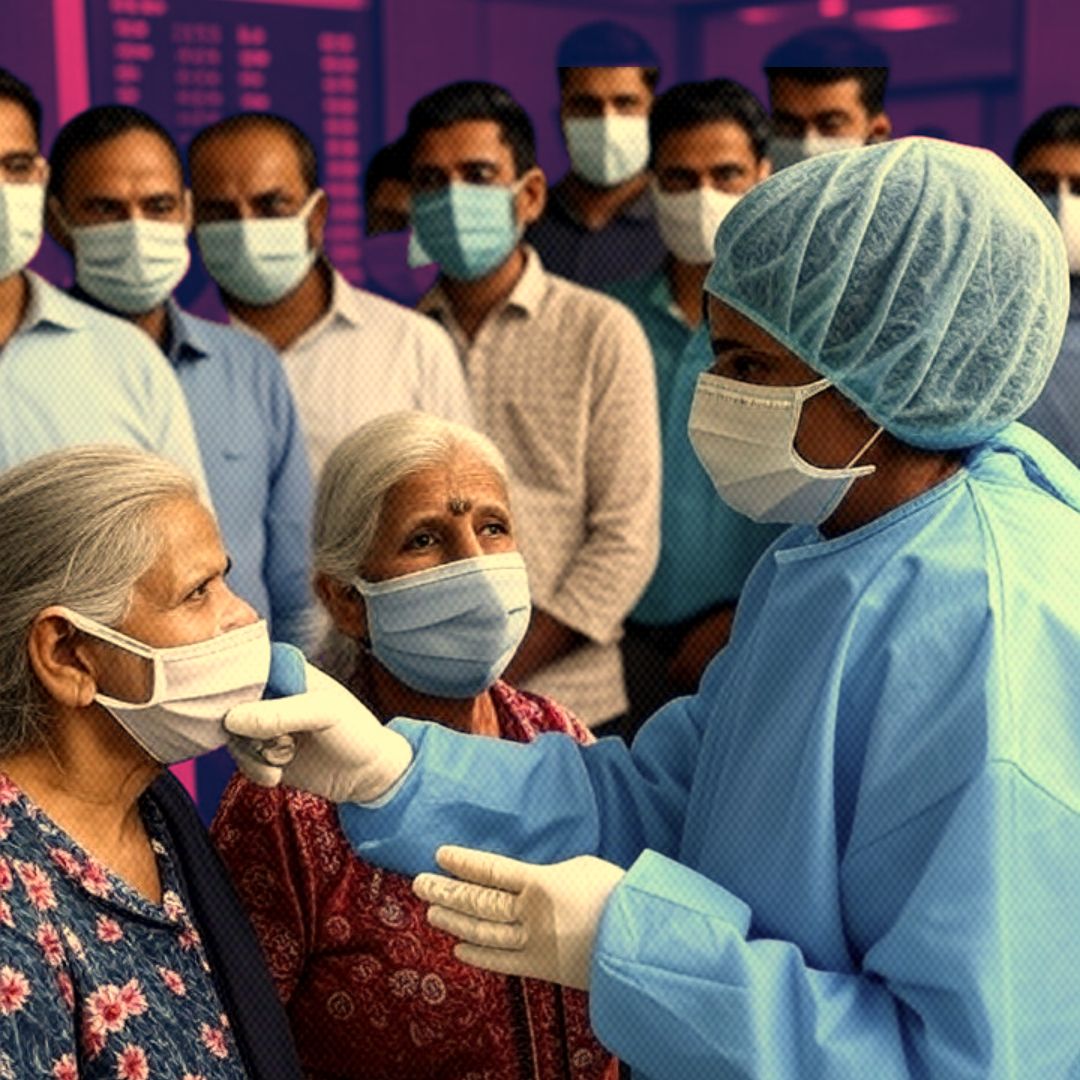India is experiencing a fresh uptick in Covid-19 cases, with more than 1,000 active infections reported nationwide as of May 26, 2025. The surge is driven by the new Omicron sub-variants NB.1.8.1 and LF.7, detected in several states including Delhi, Kerala, and Maharashtra.
While symptoms remain mild for most, health authorities and experts urge continued vigilance, adherence to Covid-appropriate behaviour, and timely vaccination to prevent further spread.
New Variants NB.1.8.1 and LF.7 Fuel Covid-19 Resurgence Across States
Delhi has now recorded 104 active Covid-19 cases, marking a sharp increase of nearly 100 cases in just one week. Kerala remains the worst affected with 430 active cases, followed by Maharashtra with 209, including Mumbai’s recent surge.
Experts have identified the Omicron sub-variants NB.1.8.1 and LF.7 as the key drivers behind this resurgence. According to the World Health Organization, these variants are classified as ‘Variants Under Monitoring’ due to their higher transmissibility, though not linked to increased severity or mortality.
Dr. Rajesh Kumar, an infectious disease specialist at AIIMS Delhi, explains, “While these new sub-variants spread more easily, we are not seeing a corresponding rise in severe cases or hospitalisations. Most patients recover at home with mild symptoms such as sore throat, fatigue, and low-grade fever.”
Delhi Chief Minister Rekha Gupta reassured the public, saying, “There is no need to panic. Our healthcare infrastructure is fully prepared to handle the current situation, and we continue to monitor developments closely.”
How to Stay Safe During the Covid-19 Uptick
- Wear Masks in Crowded or Enclosed Spaces
Use a well-fitted mask, especially in hospitals, public transport, or crowded indoor areas. - Maintain Hand Hygiene
Wash your hands frequently with soap and water for at least 20 seconds, or use an alcohol-based sanitiser. - Monitor for Symptoms
Be alert for symptoms such as sore throat, cough, fever, fatigue, and nasal congestion. If you feel unwell, stay home and avoid contact with others. - Get Tested if Symptomatic
If you develop any Covid-like symptoms, get tested promptly and follow medical advice. - Isolate if Positive
If you test positive, self-isolate to prevent spreading the virus to others, especially vulnerable individuals. - Keep Up with Vaccinations
Ensure you and your family are up to date with Covid-19 vaccinations and booster doses, as recommended by health authorities. - Follow Local Health Advisories
Stay informed about guidelines and advisories issued by your state or local health department. - Ventilate Indoor Spaces
Keep windows and doors open where possible to improve airflow in indoor environments. - Avoid Large Gatherings When Possible
Limit attendance at large events, especially if you or someone close to you is at higher risk. - Support Vulnerable Groups
Offer help to elderly neighbours, immunocompromised individuals, or those with chronic health conditions.
Government and Health Authorities Strengthen Preparedness and Public Advisories
In response to the rising cases, states like Kerala and Delhi have reinstated precautionary measures. Kerala’s Health Minister Veena George mandated mask-wearing for all hospital staff and emphasised the importance of community vigilance, especially as new variants circulate globally.
Delhi’s government has directed hospitals to ensure adequate availability of oxygen, essential medicines, and necessary equipment to manage any potential surge. Dr. Neha Singh, a public health expert, advises, “People should not ignore even mild symptoms.
Early testing and self-isolation are crucial to breaking the chain of transmission. Those eligible should also get their booster shots, as vaccines continue to offer strong protection against severe disease.” The Ministry of Health and Family Welfare continues to track the situation through enhanced genomic surveillance and testing, reassuring the public that India’s health system is well-equipped to handle the evolving situation.
The Logical Indian’s Perspective
The Logical Indian recognises that the emergence of new Covid-19 variants and the resulting rise in cases can be a source of anxiety for many. However, it is important to highlight that the majority of infections remain mild, and India’s healthcare system is better prepared than ever to manage this phase of the pandemic.
We urge readers to maintain a balanced outlook—staying vigilant by following public health guidelines and expert advice, while supporting one another with kindness and empathy. Panic and stigma only hinder collective efforts to control the virus.
This phase calls for unity, responsible behaviour, and compassion towards those affected. As a community, how can we foster an environment of cooperation and understanding to navigate the ongoing challenges of Covid-19 together?











